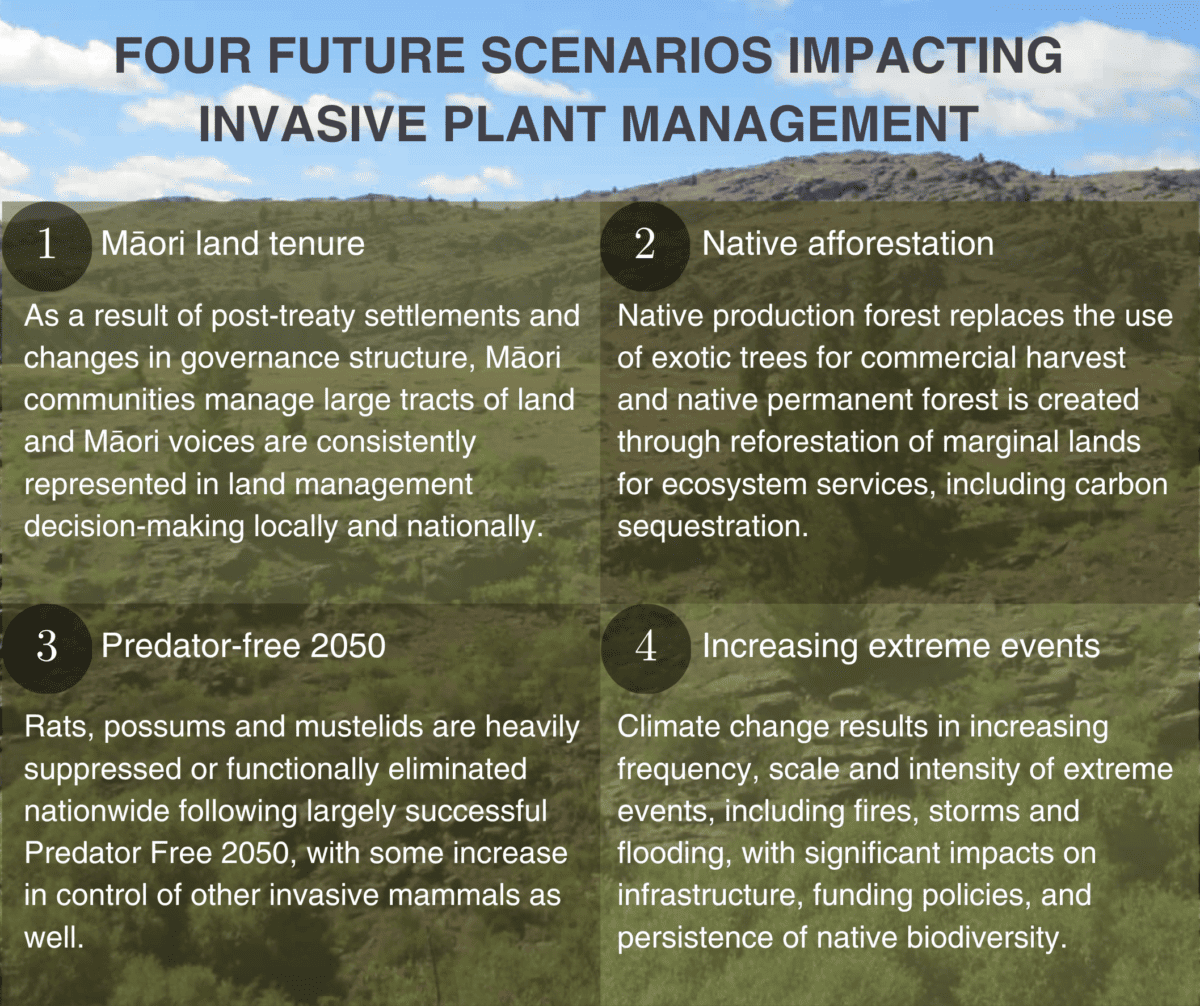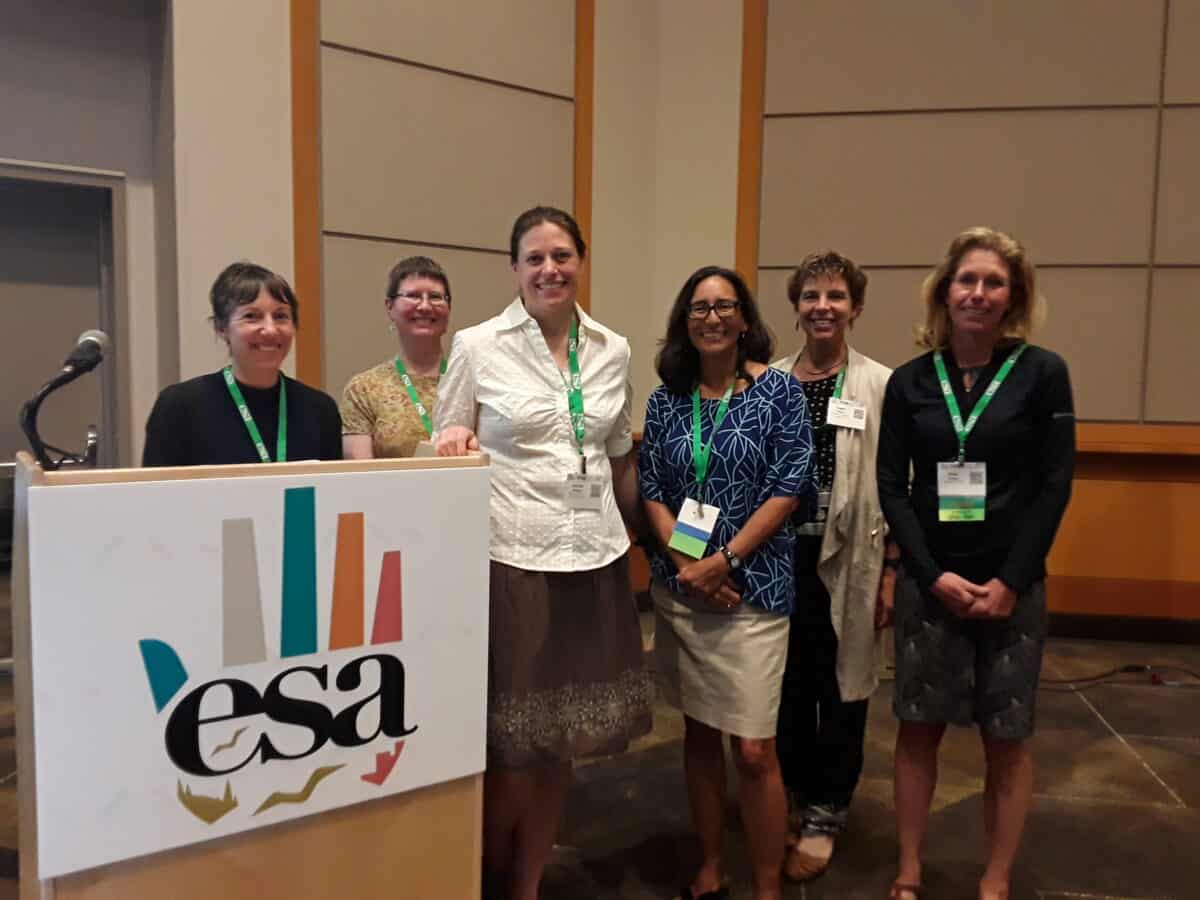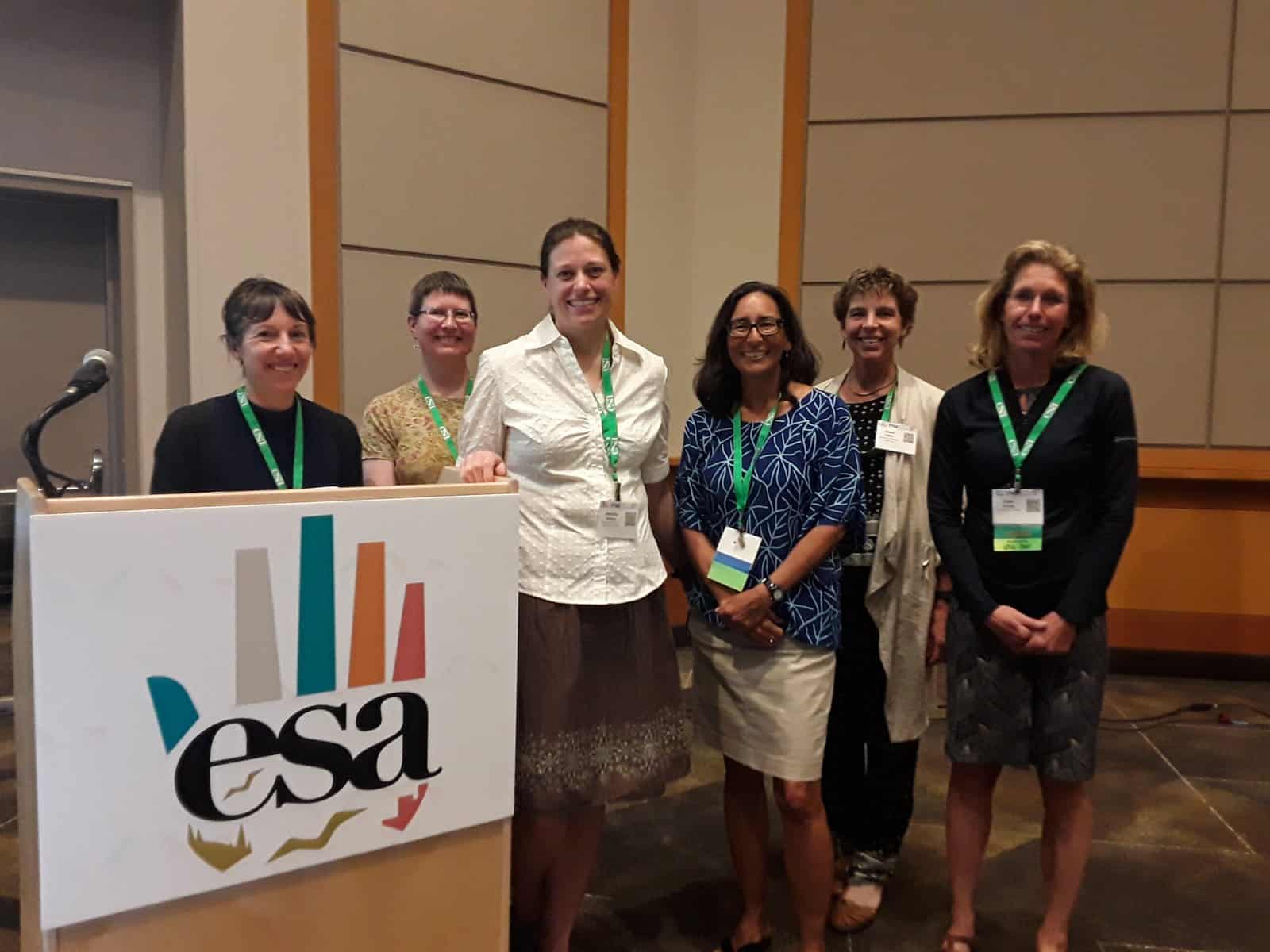Back in December 2022, we spoke with Jennifer Bufford about the two-phase horizon scan that was just starting up to identity future needs in weed research.
“The first phase of the project was developing possible future scenarios relevant to invasive plant management,” says Jennifer.
Earlier this year, the team invited people from a range of institutes and disciplines to come together and help develop those scenarios. After brainstorming a broad range of options, four scenarios were decided upon.
At face value, these scenarios don’t seem terribly weed related. However, this is by design.

“There are certain things that plant invasion ecologists tend to think about, like species shifts due to global warming or what would happen if we stopped using herbicides,” says Jennifer. “We wanted to break out of that mould and examine a wider range of possible futures for New Zealand.”
With phase one complete, the team have been preparing for the second phase of this project: taking these scenarios to practitioners and researchers and asking them what these scenarios would mean for their work.
Before starting this phase of the project, Jennifer and Angela wanted to know how other plant invasion researchers go about connecting with conservation practitioners and other specialists. To gain more insight, they ran a session at the annual Ecological Society of America conference. The goal of the session was to generate ideas for closing the gap between research programs and the needs of decision-makers to foster the application of ecological research and knowledge on the ground.
For their session, they asked eight plant invasion ecologists to give 5-minute presentations on how they have sought to close gaps by working with managers and policy makers to provide the key insights needed to develop effective management strategies.
“It’s quite an unusual format, and five minutes isn’t a lot of time,” says Jennifer. “But people did really creative and interesting things with the time.”

After the talks, presenters distributed to tables with attendees and there was a discussion. While the presenters all worked in invasive plants, session attendees had a variety of backgrounds.
“It was really interesting to hear how people working in fisheries or teaching at universities approached similar gaps between research and application.”
Jennifer, Angela and their wider team are now applying the lessons learned in the ESA session to connect with a range of plant invasion practitioners in New Zealand.
“We’re holding a series of workshops to consult with land managers, iwi, and other people working on the ground. Building on the Inspire session, the goal is to engage with practitioners to identify top priorities, information gaps, and research needs they might have for a given scenario.”
In November, the team will be hosting a group of plant invasion ecologists, who will be presented with the scenarios alongside the practitioner feedback. Using the knowledge of these subject matter experts, Jennifer and Angela hope to identify research priorities for each of the four scenarios as well as actions to be taken to prepare for those kinds of futures.
Jennifer is excited to have these conversations and thinks they will be more positive than she initially imagined.
“When we first asked people what the future of conservation might look like, I expected a lot of negative answers,” says Jennifer. “But many of the scenarios posed were quite positive. It’s been fun to think about what these futures might look like.”
Jenny Leonard
